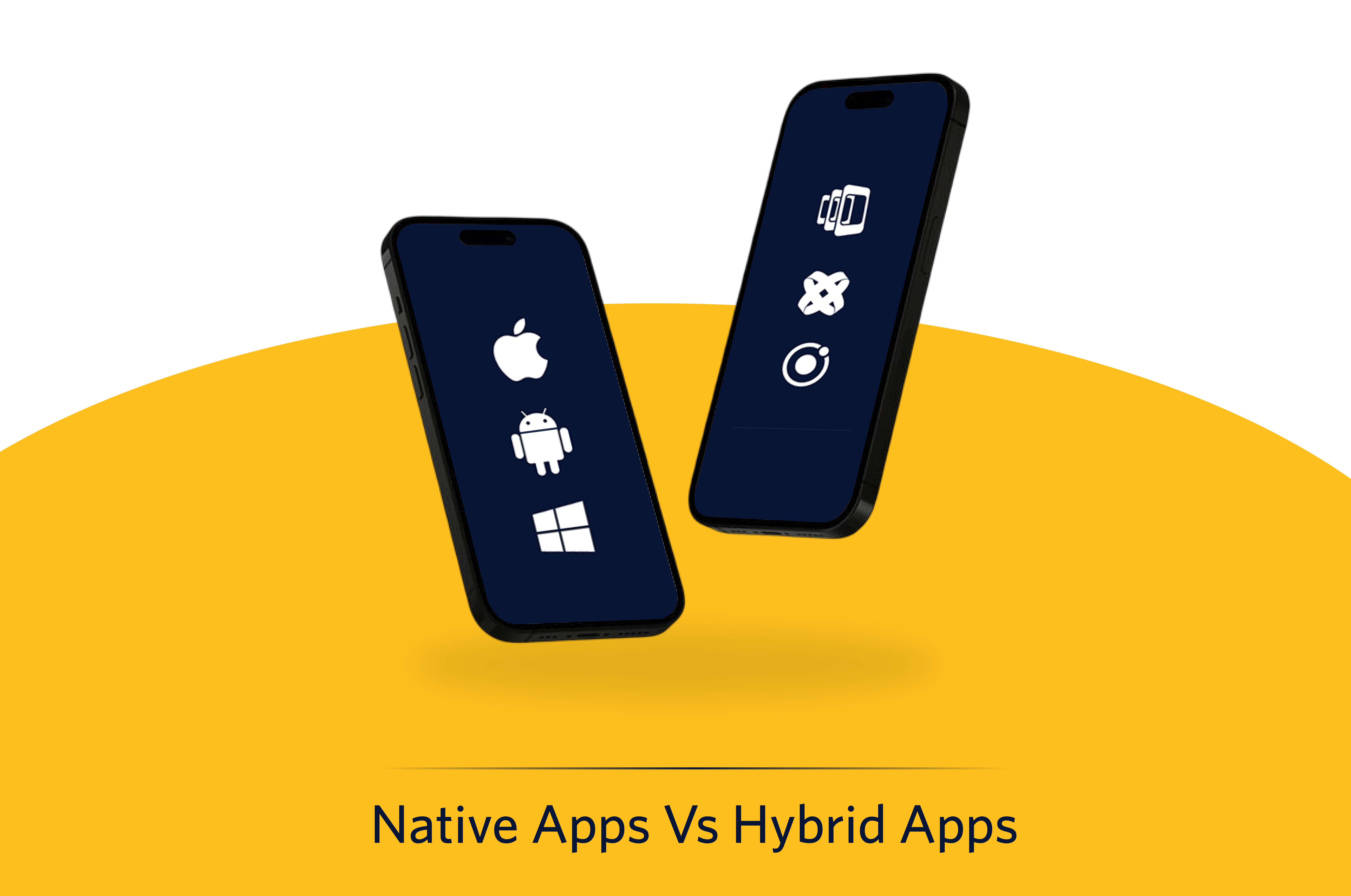In the modern era, smartphones have developed into very useful tools due to their many features, including instant communication via social media and email, web browsing, entertainment, GPS, and numerous other productivity apps. Which front-end technology stack to choose is one of the first choices you have to make when creating mobile apps.
What is native app development?
Native applications are built for the specific platform they are intended for and are designed in a specific language for a specific device. As a result, a native application created for Android will never function on iOS, and vice versa.
The application can utilize all of the features of the device it was designed for, including gestures, location, GPS, camera, and other features, owing to its specialization. This significantly boosts efficiency and makes the app quick and simple to use. By structuring them in this way, it is possible to take a more user-focused approach, which improves the app's usability and makes it more interactive and intuitive.
What is hybrid app development?
A hybrid application combines aspects from the web and native development to cover in some deficiencies in each other and is a single software that can run on several operating platforms like Windows, iOS, or Android.
Although hybrid apps have the appearance of native applications, they have the advantage of using a single codebase to support several device kinds. It costs less to create and is simpler to design than a native application. The native layer lacks some of the performance and functionality benefits that a native application can have because it is not the complete picture.
Native vs hybrid mobile app
-
Functionality
If your app requires access to native device functions like the camera, microphone, or GPS, you may need to build a native app. Native apps can offer better speed and user experience since they have direct access to these features. Hybrid apps can make use of these features as well, but they might need additional libraries or plugins to do so. -
Target audience
If your target audience primarily uses one platform (iOS or Android), it may make sense to build a native app for that platform to provide the best user experience. However, if your audience is spread across multiple platforms, a hybrid app may be a better choice since it can be built once and deployed to multiple platforms. -
Budget
Native app development can be more expensive since you need to build separate versions of the app for each platform. Hybrid app development can be more cost-effective since you can use a single codebase to build the app for multiple platforms. -
Timeline
Native app development can take longer since you need to build separate versions of the app for each platform. Hybrid app development can be faster since you can use a single codebase to build the app for multiple platforms. -
Developer expertise
If you have a team of developers who are skilled in one particular platform (iOS or Android), it may be easier to build a native app for that platform. However, if you have developers who are skilled in web technologies, hybrid app development may be a better choice.
Ultimately, the decision between native and hybrid app development will depend on your specific needs and circumstances. It's important to consider all of the factors involved and weigh the pros and cons of each option before making a decision.


.png?width=352&name=image.png%20(6).png)

